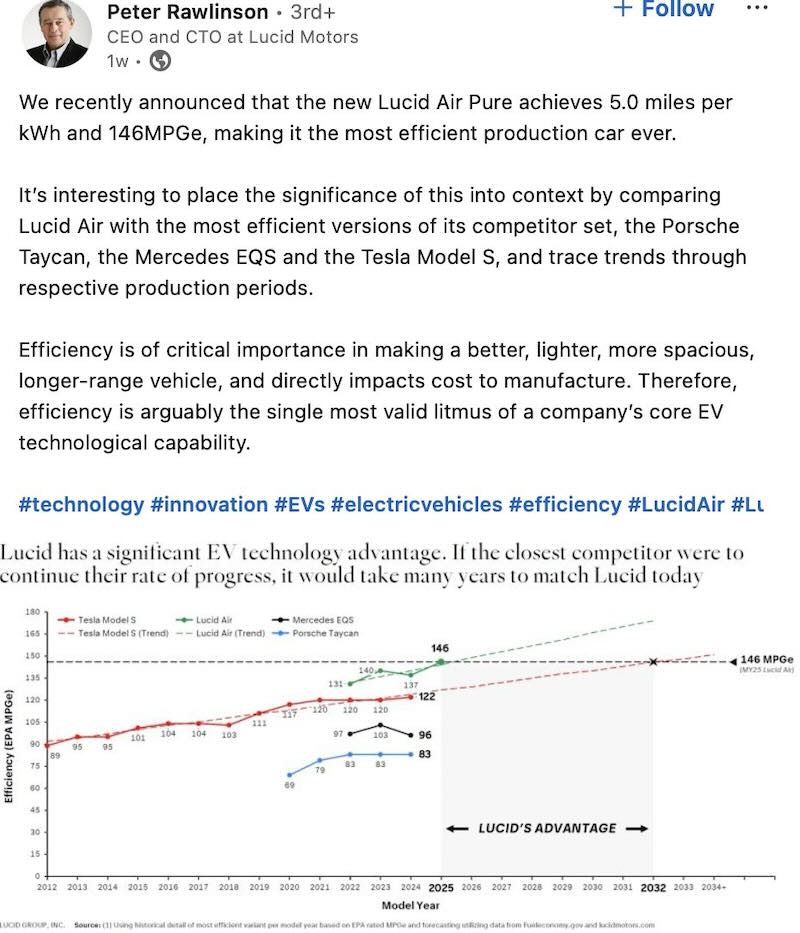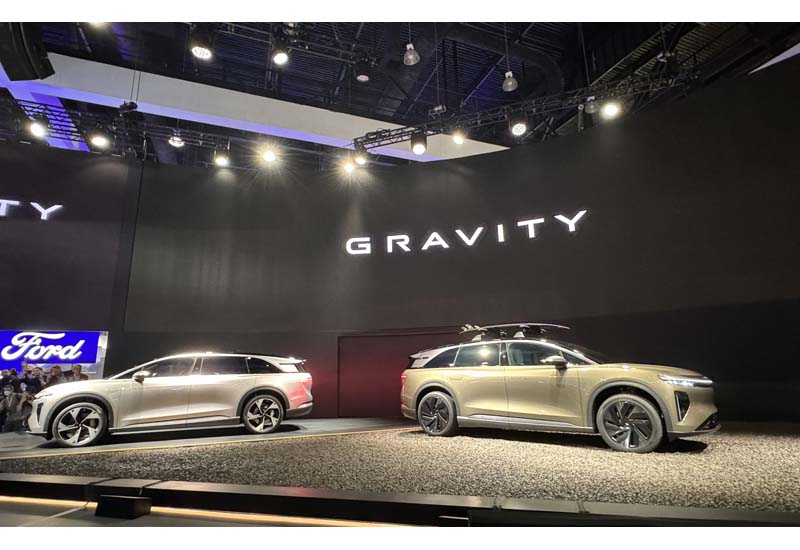Lucid Motors, a rising star in the EV firmament, has recently made bold claims about its technological prowess, suggesting a significant lead over industry titan Tesla. But do these assertions hold water, or are they just another case of startup bravado?
Lucid CEO Peter Rawlinson has thrown down the gauntlet, declaring that the new Lucid Air Pure achieves an impressive 5.0 miles per kWh and 146 MPGe. Peter asserts, makes it “the most efficient production car ever.” It’s a claim that’s sure to raise eyebrows—and perhaps a few skeptical glances—in boardrooms from Palo Alto to Stuttgart.
Peter’s comparison pits the Lucid Air against heavyweights like the Porsche Taycan, Mercedes EQS, and Tesla Model S. He argues that efficiency is the “single most valid litmus of a company’s core EV technological capability.” It’s a compelling point, but one that may oversimplify the complex landscape of EV development.

Lucid’s assertions extend beyond mere efficiency. The company claims a $3,000 battery cost advantage over Tesla—a figure that warrants closer scrutiny.
Several factors cast doubt on this purported advantage:
- Battery prices in 2024 are reportedly well below $100/kWh, contrary to Lucid’s estimates based on 2023 data.
- Tesla’s massive production scale—1.8 million cars annually versus Lucid’s 9,000—likely translates to more favorable supplier terms.
- Even if the $3,000 savings were accurate, Lucid still faces significant per-vehicle losses, suggesting deeper structural challenges.
While Lucid’s efficiency achievements are noteworthy, the path to profitability and market dominance is far more complex. The company’s focus on battery cost savings, while important, may be overshadowed by broader financial hurdles.
Lucid’s claims serve as a reminder that in this industry, it’s not just about who can go the farthest on a single charge—it’s about who can turn technological advantages into sustainable business success. For now, it seems Lucid might be charging ahead with its efficiency claims, but the true test will be whether these advances can spark a real revolution in the EV market.
